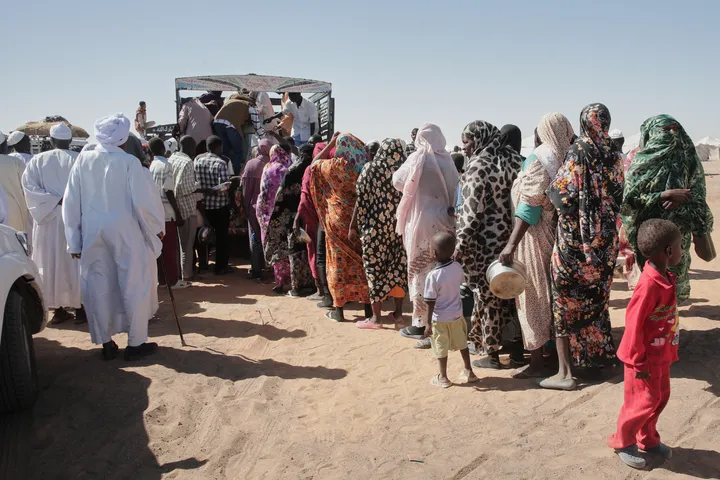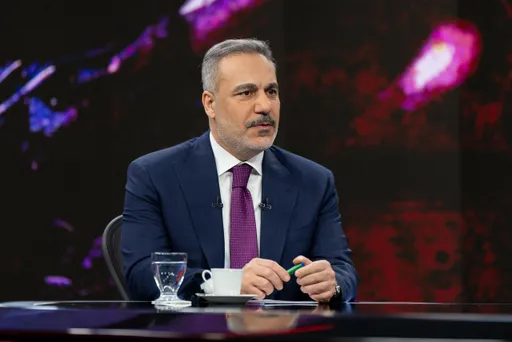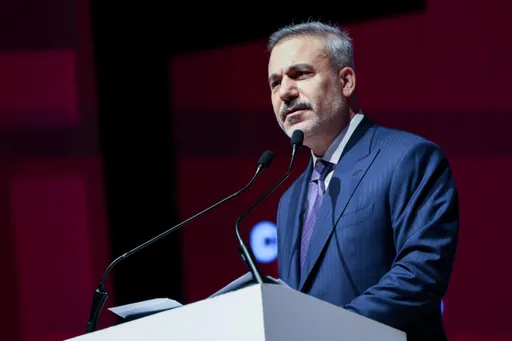Prior to the UN climate summit COP26 in Glasgow, Saudi Arabia announced a promise of becoming a net-zero greenhouse gas emitter by 2060. However, a leaked report discovered by Greenpeace and published by the BBC demonstrates an alleged Saudi campaign to undermine the UN climate efforts they purport to support.
The leaked report reveals that the Saudi announcement is essentially Crown Prince Muhammed bin Salman's attempt at "greenwashing".
First, the findings fit a pattern of Saudi Arabia's long record of resisting climate change mitigation.
Second, Saudi Aramco, the national oil company, is one of the world's greatest producers of petroleum and greenhouse gases. The Kingdom is a rentier state with an economy that survives on rents on oil. Calls for an end to petroleum use will undermine the financial source of the Kingdom's survival.
Finally, bin Salman, or MBS for short, rules a state which has historically relied on oil-subsidised loyalty, a regime of no taxation and no representation. Calls for the end of petroleum are a threat to MBS' short-term domestic regime survival. However, in the long term, Saudi Arabia is one of the desert states most vulnerable to climate change. Prioritising short-term anthropocentric gains over a long-term environmental vision will ultimately destabilise the country.
A history of resistance
In a previous article for this publication, "MBS versus Greta Thunberg", I analysed findings from The Intercept, which revealed a discreet Saudi strategy to undermine the UN's climate change policy, as well as influencing US public opinion at a domestic level. Greenpeace's release of the leaked report allegedly confirms this past precedent of an opaque lobbying campaign, whether in the UN or US. With regards to the latter, Saudi Arabia funded climate skeptic lobbying groups and front organisations in Washington and nationally.
Joanna Depledge of Cambridge University has characterised Saudi Arabia's policy at the UN level as "striving for no" in climate negotiations.
As early as 1995, during the Intergovernmental Panel on Climate Change (IPCC) meeting in Madrid, an official from the Saudi oil ministry, Mohammad Al Sabban, resisted the science proving climate change.
During the failed 2009 negotiations in Copenhagen for a climate accord, he proclaimed, again, that "there is no relationship whatsoever between human activities and climate change".
Prior to the 2015 Paris accords, Saudi Arabian negotiators objected to the mention of bringing average temperatures down to 1.5 Celsius in the future, as well as periodic reviews of climate strategies. The team also demanded that if small island nations were to be compensated by developed nations for climate change, then Riyadh should also be compensated for loss of future oil revenue.
Just as it did prior to COP26, Riyadh launched a greenwashing campaign in the lead up to COP25 in 2019 with slick videos on Twitter and YouTube and reports promising to achieve "global net-zero emissions".
Yet during a previous UN conference on climate change in Katowice, Poland in that same year, Depledge said that "Saudi Arabia was picking at point after point" in the IPCC's latest report.
In other words, its actions prior to COP25 belied its promises.
The same occurred prior to COP26 in Glasgow. Despite Saudi Arabia's promise to become a net-zero emitter, it was seeking to undermine the IPCC's work.
COP26 in Glasgow
Prior to COP26, Saudi Arabia - along with Australia and Japan - tried to influence the text of the UN climate science report due out next year. Negotiators from the Saudi oil ministry pushed the authors, most of whom are scientists, to remove references to any literature arguing for the phasing out of hydrocarbon fuels to avoid the worst effects of climate change.
The UN scientists behind the report reject pressure from numerous countries to modify their work. Nonetheless, it demonstrates that as the world's biggest oil exporter, Saudi Arabia will resist attempts at phasing out hydrocarbons.
A Greenpeace spokesperson, Jennifer Morgan, said in response to the leaked report: "Key to the strategy of fossil fuel interests like the Saudis is to dodge blame for wrecking the talks, so they always try to keep their fingerprints off. They light matches, drop them, start fires and walk away." The opaque lobbying campaign substantiates her claim.
Granted, Saudi Arabia is only one country, yet the UN climate summit must have the consensus of every member, thus one nation can theoretically undermine the effort.
The Arabian Peninsula's future
Morgan added: "No country is immune to the catastrophic threat of rising temperatures, Saudi Arabia included. Indeed, the Gulf region is warming even faster than the global average."=
Climate change has and will affect the Arabian peninsula, depleting water supplies and exacerbating desertification. Saudi Arabia and its neighbours are some of the most "water-stressed" countries in the world.
The 2019 summer heatwave witnessed some of the hottest temperatures on earth, up to 55C in central Saudi Arabia. Current projections show that parts of the country will become uninhabitable.
Rising sea levels have flooded the Red Sea port city of Jeddah, and in the future this could affect the Muslim pilgrimage to nearby Mecca. Rising sea levels will also threaten Saudi Arabia's Eastern Province on the Gulf, where much of Aramco's oil facilities are located, ironically enough.
Yet for nearly 30 years, as global warming came to the attention of the international community, Saudi Arabia has sought to obstruct global efforts to reduce carbon emissions, which would hurt its primary source of income as a rentier state.
There is no doubt that oil built up Saudi Arabia in the 20th Century in what can be deemed the world's "petro-century". While it reaps profits from its short-term anthropocentric strategy, the oil that built Saudi Arabia could lead to its demise in the long term.
























